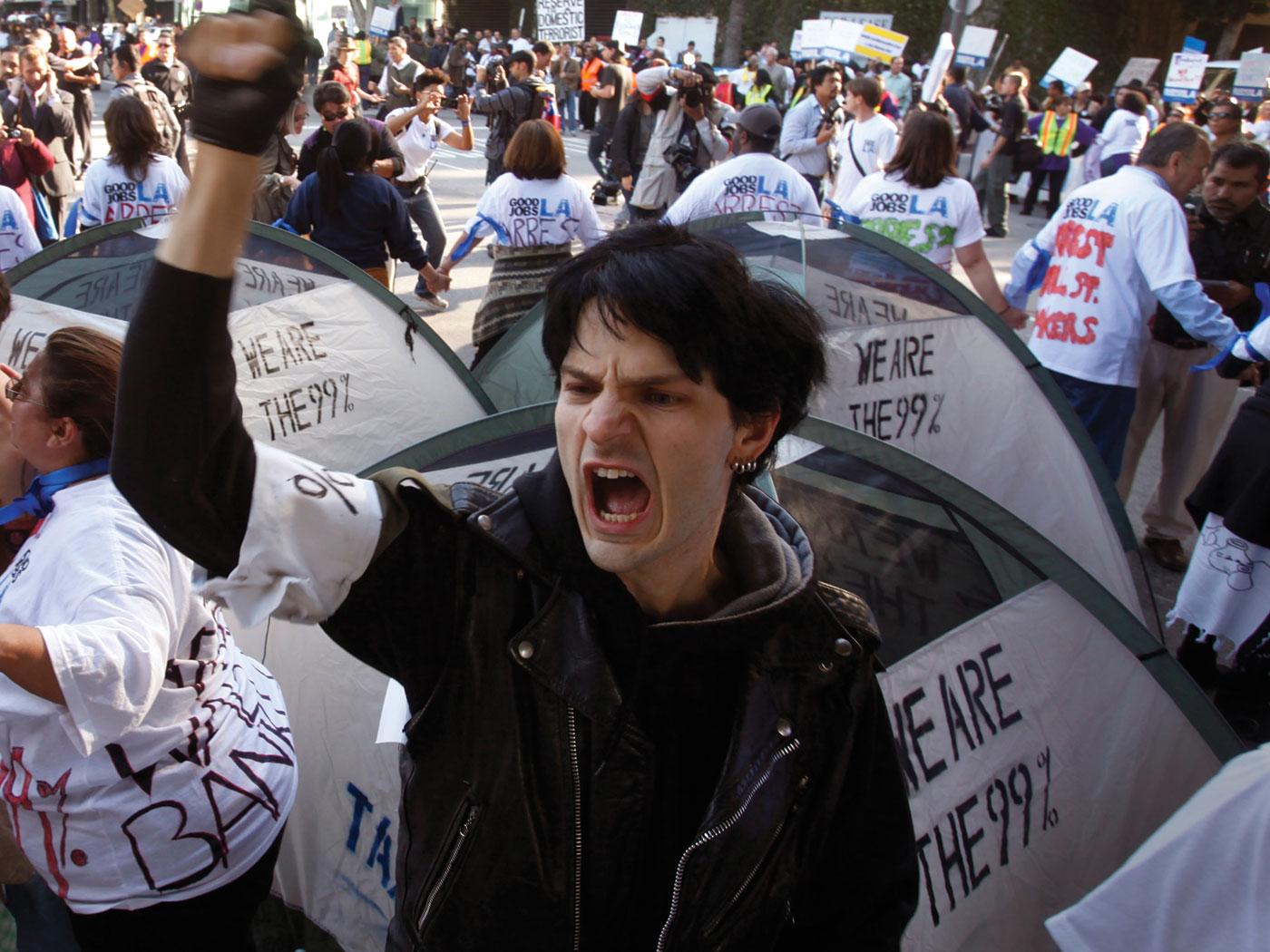Occupy Slogans Fall on Deaf Ears: The Apathy of the Undergraduate
December 7, 2011

A couple of weeks ago I was sitting in the Ram Van on my way back from a class at Rose Hill. I had put on my clunky earmuff headphones, having had enough of the conversation going on around me; the driver and her ride-along passenger continuously babbled about booze, shoes and partying, while the philosophy students sitting behind me complained about their professor. I had begun to doze off when I heard chanting in the distance. I opened my eyes and took off my headphones.
“Oh my God,” the driver marveled. “What is this?” All along the sidewalk of Columbus Avenue, construction workers and members of various workers’ unions marched in solidarity with Occupy Wall Street, demanding higher rates.
“I don’t like this. This scares me,” she said. The driver had something of a frustrated unease in her voice. “This is, like, how riots start—it’s like, I don’t care about this, get out of my face—close the window.” Her passenger obeyed, and the driver turned the radio back up. She continued to describe the shoes she needed to buy that weekend while the passenger sang along to “Moves Like Jagger.” The students sitting behind me critiqued, “I guess this is better than camping in the park and doing nothing.”
In front of me, indifference. Behind me, detached skepticism. I thought about the countless stories of civil action and general go-getter activeness of college students back in the civil rights era. Aren’t college students supposed to be more involved than this?
I won’t try and paint myself as some hardcore protester; I’m far from it. While I would love to skip out on classes to support Occupy Wall Street, my parents and I are sinking far too deeply into debt for academic sacrifice to be a wise option. But what’s been happening all over the country is relevant to everyone, young and old, whether you’re roaming the insular bubble of college or sticking it out in the real world. As such, I’ve made the trek down to Zuccotti Park more than a few times on weekends, just to engage in conversation, learn about the different people taking part in the movement and to witness the U. S. population in a microcosm.
History has been happening in our backyard for nearly two and a half months now, and it shocks me, even saddens me, that so few Fordham students are engaging in it. A few weeks ago, the Campus Activities Board held a Wall Street information event on Lowenstein Plaza, where professors and occupiers explaind and examined the movement and the causes it concerns. My heart sank when I saw how few students—20, 25 at most—were in attendance. Even fewer students raised their hands when one of the speakers asked, “Show of hands—who’s been down to Zuccotti?” Students walked back and forth between Lowenstein and McMahon, earbuds firmly in place, barely even glancing towards the small crowd.
On one of the occasions I visited Zuccotti, a group of high schoolers stood on the sidewalk, one of them carrying a sign that read, “FIGHT APATHY.” I inquired and they told me that the majority of students in their magnet school neither knew nor cared about political issues. I wanted to tell them that things would be different once they got to college—but I wasn’t even sure of that myself. I’m still not. After the many half-conversations I’ve had and judgmental Facebook statuses I’ve read from people who had formed opinions of the protest without having been to the park, I’m inclined to think most college students are about as inactive and uninformed as most high schoolers.
I commonly hear Fordham students complain about how our school doesn’t treat us as though we were adults. But adults have responsibilities not only to themselves, but to their neighborhoods and their societies. As participants in democracy, we’re supposed to do more than simply cast our vote for whichever team we’re on every four years. We’re supposed to pay attention to everything that goes on in our country: from the hard issues to the minor injustices, from the new developments to the crumbling antiquities. Simply being a typical liberal arts student scoffing at Fox News doesn’t make you a responsible, politically aware adult. Democracy is about participation, discussion and vigilance.
Fordham has plenty of political clubs and organizations encouraging societal action and awareness. What they lack is people who care. All the resources are at the fingertips of idle hands. It can be difficult working with the Fordham administration, yes, but action, however small, should be worth any difficulty, however large.
When news of the protesters’ eviction broke, I saw a few different reactions. There were the usual smug Facebook statuses from people who hadn’t even been down to see the protest for themselves, as well as disappointment. A suitemate of mine expressed regret; he had meant to visit the park for weeks, but he had never made the time. The protesters’ eviction in no way condemns them to inaction. It’s not too late to witness what many are calling history in the making; whether or not you agree with that judgment, you owe it to yourself and to society to form judgments on your own merits, rather than aping what journalists, Tweeters and Facebook statuses opine. You’re in college. Be your own person; go and see the world, and form your own opinions.









